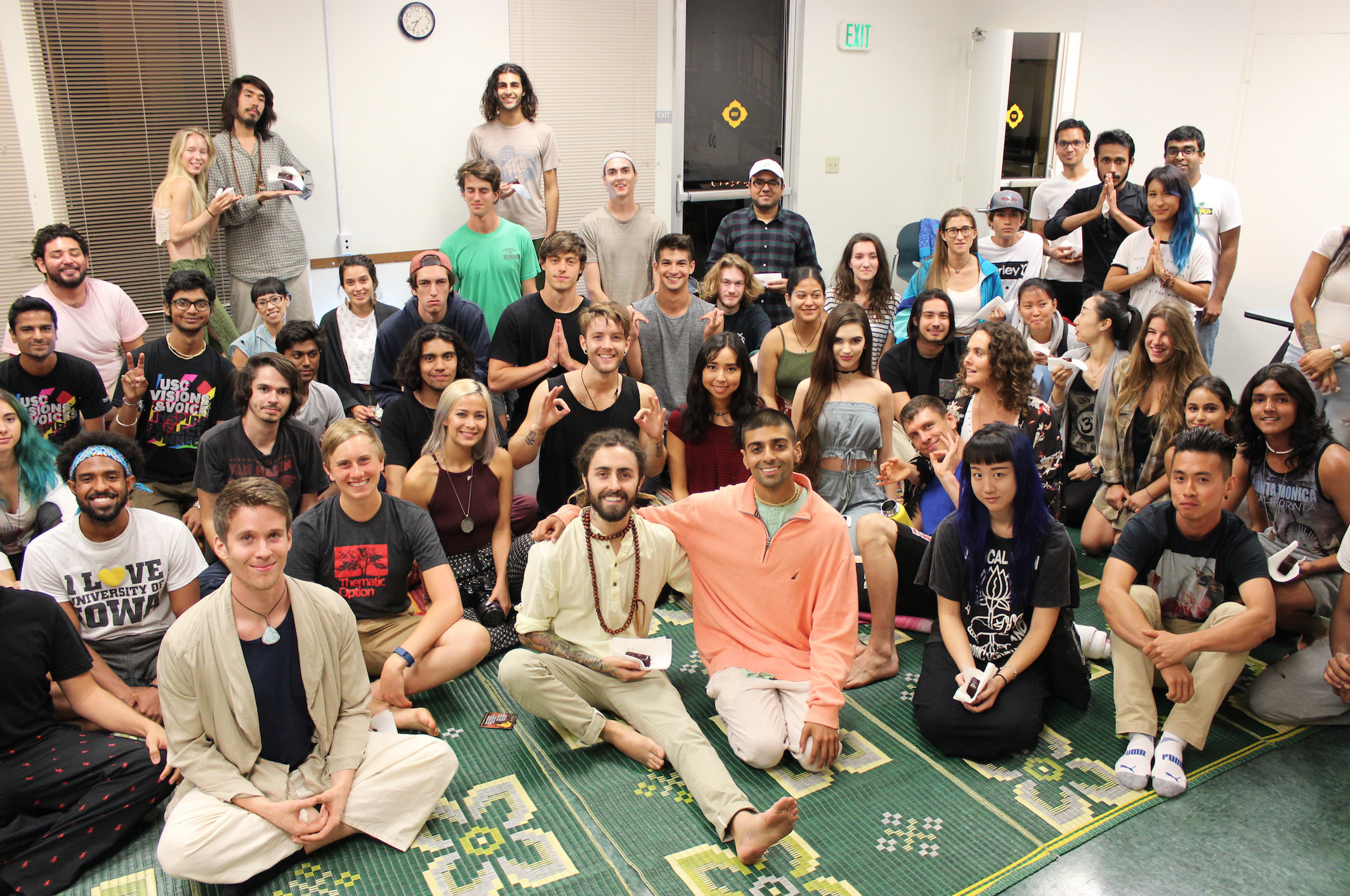Organization aims for mindfulness through meditation and music
To help foster a more peaceful and mindful environment on campus, a new student organization is working to provide techniques to alleviate stress and promote healthy lifestyles among the USC community.
The Music Meditation Club was founded by Jaya Chaitanya Das, a former hip-hop producer. Das originally had the idea to create this student group to combine two elements — music and meditation — to improve students’ overall mental health.
“I’m showing the ways that people can cope with stress through music therapy,” Das said. “I want to address these things especially because there are high rates of stress and anxiety in colleges these days. I want to give [students] an alternative through meditation to help alter their lifestyle, awareness and consciousness.”
Prior to receiving his position as a chaplain on campus and creating this club, Das devoted much of his life to traveling to different monasteries throughout India and in the United States.
The club meets every Monday from 6 to 9 p.m. at the University Religious Center, and the meetings are generally accompanied by vegan desserts, guest speakers, discussions and group meditations.
“We aim to involve music and meditation,” graduate student and club president Vibhanshu Sharma said. “Although there are a lot of meditation techniques out there, Jaya and I thought of bringing these two together because music has a significant impact. Music can bring us down if we hear sad music, or it can be romantic and really cheer us up.”
At the last club meeting, more than 80 students showed up. The class began with guided breathing and yoga and then continued with a panel discussion. Filmmaker and self-published author Koi Fresco was then introduced as a special guest and spoke about how he dealt with his recent car accident and how spirituality and meditation helped him overcome the physical and emotional pain.
The meeting was then concluded with a meditation session to the beat of musical instruments. The session attracted a diverse group of students, ranging from those who were familiar with meditation to those who were completely new to the practice.
“I got into these existential questions since my freshman year in high school and I’ve been mulling those ever since,” said Garrett Flynn, a freshman majoring in computational neuroscience. “I’ve listened to a lot of lectures on YouTube and tried to incorporate as many practices as I could, on my own. But a lot of the times the motivation wasn’t there, so it’s nice to be able to go and meet with a community who are also interested in the same things, because it helps hold yourself accountable.”
Das hopes to educate students about the variety of methods to cope with stress through philosophy, mindful eating, guided breathing, yoga and mantra meditation. Each of these techniques helps improve one’s health through various methods and has a specialized purpose.
“Yoga is for your physical health, guided breathing is for your mental health and mantra meditation is for your spiritual health,” Das said. “Guided breathing is being more aware of your breath. We take about 20,000 breaths a day, but how are we aware of just a few of them? It helps you become more aware and helps you focus on the moment.”
Although all of the methods are important and useful, according to Das, the organization heavily emphasizes the ancient practice of mantra meditation. The Sanskrit word “mantra” can be split into two — “man” means mind and “trai” means free, literally translating to “freeing the mind through sound,” Das said.
The method involves three steps: to chant, focus and repeat. According to a mantra meditation guide Das passed out, the first step is to chant the three names of “Hare,” “Krishna” and “Rama” to create a spiritual sound vibration. Next, the key is to focus on the words of the chant to create a transcendental feeling and to revive one’s consciousness. Finally, students are encouraged to repeat the chant and to make it a regular daily practice to promote relaxation.
“Being a graduate student myself, we have a lot of stress not only in terms of course curriculum and workload, but also in terms of jobs, internships and personal life,” Sharma said. “You need to learn how to balance and manage everything together so I personally feel like this [mantra meditation] is something people would like because everyone feels these kinds of hardships.”
Das plans to invite more guest speakers in the field of yoga and meditation to help teach and deliver to the students, such as the founder of Def Jam Recordings Russell Simmons, singer Lana Del Rey and former YouTuber Kevin Wu, also known as KevJumba.
For its future plans, the USC Music Meditation Club aspires to continue spreading the importance of handling stress in a safe way through meditation and other ancient practices through the campus, Das said.

